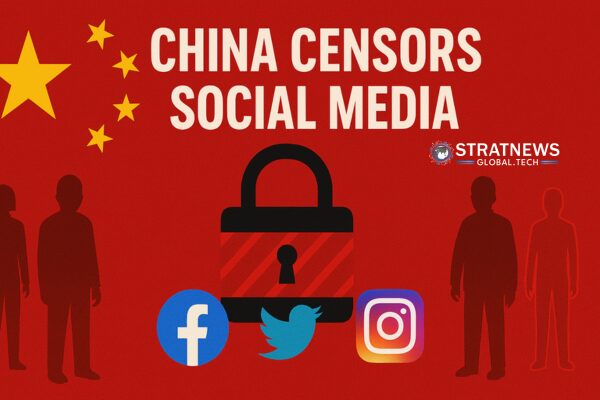China Censors Tariff Talk Online as US Slaps 104% Duties on Chinese Goods
China censors discussions about new US tariffs on its social media platforms after sweeping “reciprocal” tariffs from Washington took effect this week. These include a staggering 104% duty on Chinese goods, prompting online outrage and ridicule in China—but only selective posts remain visible.
Hashtags Blocked, Mockery Allowed
Searches for keywords such as “tariff” or “104” on Weibo now lead to error messages, with most content blocked. Even related hashtags were suppressed, reflecting the Chinese government’s efforts to control the narrative. Meanwhile, anti-US content—especially those mocking the United States—was left untouched or even promoted.
A top trending hashtag launched by state broadcaster CCTV, “#UShastradewarandaneggshortage”, implied that the US is suffering food shortages while imposing tough trade policies. The post claimed the US was “urgently asking for eggs” even as it struck high-profile tariff deals against the EU and China.
On WeChat, a popular Chinese messaging app, posts by local businesses discussing the damage caused by the US tariffs were removed. The platform flagged them for violating “relevant laws, regulations, and policies,” according to a Reuters review.
Beijing’s Response and Public Sentiment
China has announced its own retaliatory tariffs and vowed to confront what it calls economic blackmail. Although Beijing may struggle to match the scale of US tariffs—given it exports three times more to the US than it imports—it has few alternatives. State media and online influencers are now building public support for a long-term trade standoff.
Prominent Beijing lawyer Pang Jiulin, who has over 10 million followers on Weibo, warned that Chinese companies might lose access to the US market. He noted that other countries like Vietnam and India could quickly replace China’s exports.
“If China also imposes 104% tariffs, the prices of American products such as Apple and Tesla goods will spike,” Pang said, warning that Chinese consumers will bear the cost of such retaliation.
Market Reaction and National Messaging
The Shanghai Composite Index had its worst trading day in five years on Monday, dropping 7%, but rebounded on Wednesday after government reassurances of market support.
Hu Xijin, a well-known commentator, slammed the US tariff strategy, calling it “delusional” and destined to fail. “They are at war not only with the whole world, but also with the most basic rules of human society,” Hu said. He predicted the US tariffs would be remembered as a “historical embarrassment.”
While Beijing tightens its grip on sensitive online topics, it continues to use social media to stir nationalist sentiment and reinforce its stance against the US in what appears to be a new phase of trade conflict.
with inputs from Reuters


